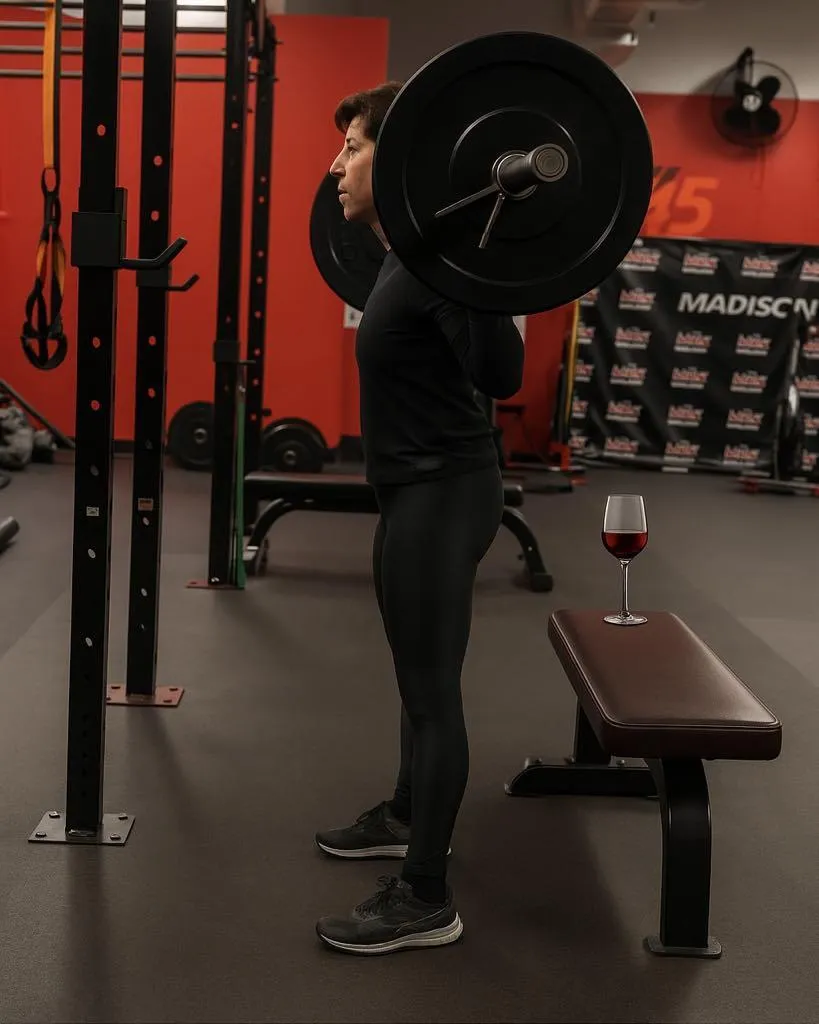
How Alcohol Affects Muscle Growth and Fat Loss—Especially After 40
We all know alcohol adds empty calories. But if your goal is to lose fat, gain strength, or finally start seeing definition in your arms and legs, it’s important to understand what alcohol is really doing behind the scenes.
It’s not just about the drink in your hand—it’s about what that drink is doing to your body for hours or even days afterward. The impact becomes even more noticeable after 40, when your body’s systems become more sensitive to outside stressors.
When alcohol enters your system, your body treats it like a toxin. Your liver immediately shifts into detox mode, prioritizing the breakdown of alcohol over other metabolic processes. As a result, fat burning comes to a halt. Your body won’t return to burning fat until every last trace of alcohol is processed. So even if you’re eating clean and exercising regularly, alcohol can stall fat loss simply because your body is focused on getting rid of the alcohol first.
Alcohol also slows down muscle repair and growth. After strength training, your body begins the process of rebuilding muscle fibers through muscle protein synthesis (MPS). This process is essential for developing strength and lean muscle. However, even moderate alcohol intake can reduce MPS by up to 37 percent. That means while you're sipping your drink, your body is doing less of the critical work needed to recover and build strength. If you’re showing up and putting in the work at the gym, this can be a frustrating setback.
On top of that, alcohol hijacks your brain. It lowers your inhibitions and clouds your decision-making, especially when it comes to food. It can trigger hunger signals and amplify cravings for salty, greasy, high-calorie options. Combine that with the stalled fat burning, and you’ve created a perfect storm for weight gain. Those “give me fries, pizza, and dessert” moments aren’t just willpower failures—they’re chemically driven impulses caused by alcohol’s effects on your brain.
There’s also a hormonal cost. Testosterone, which plays a crucial role in muscle growth and fat loss, drops after drinking. Meanwhile, cortisol, a stress hormone that breaks down muscle and promotes fat storage, rises. That hormonal imbalance can last 24 to 48 hours, meaning even a few drinks over the weekend can impact your performance and recovery for days afterward.
Alcohol doesn’t just interfere with hormones—it also wrecks nutrient absorption. Your body needs protein, B vitamins, magnesium, zinc, and other key nutrients to build and maintain muscle. Alcohol can block the absorption of those nutrients, so even if you’re eating all the right foods, your body may not be able to make the most of them.
And then there’s sleep. You’ve probably heard the phrase: muscles are broken down in the gym, fed in the kitchen, and built in the bedroom. You don’t grow stronger in the gym—you grow stronger when you recover. Alcohol disrupts the deep sleep phase where your body releases growth hormone and repairs muscle tissue. It also increases inflammation and soreness, slows glycogen replenishment, and interferes with hormonal recovery. If your workouts feel harder than they should, or you’re not bouncing back the way you used to, alcohol could be one of the culprits.
These effects only compound with age. Many people think that muscle just naturally declines after 40, but that’s only part of the story. The real reason muscle decreases is because we stop using it. You can absolutely build and maintain muscle into your 40s, 50s, and beyond. You just have to be more intentional—and alcohol makes that process even harder. With shifting hormones, longer recovery times, and a slower metabolism, alcohol adds another layer of resistance to progress.
The good news? You don’t have to give it up forever. But if you want to see meaningful changes in your strength, energy, and body composition, it’s worth cutting back—especially while you’re actively working on your fitness goals. Opt for lighter drinks like vodka with soda, dry wine, or light beer. Stay hydrated, fuel your body properly before and after drinking, and avoid intense workouts the day after a night out so your body has time to recover.
If you’re over 40 and putting in the work, you deserve to see results. But alcohol may be the hidden factor holding you back. Even a short break or reduction in drinking can lead to better sleep, faster recovery, and noticeable improvements in fat loss and strength.
If you’re ready to find a realistic plan that supports your goals without forcing you to give up everything you enjoy, that’s exactly what we help people do.
